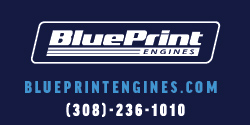I just found this on one of the chat sites;
The "X" block was produced in the late 70s as a race block. The features/differences from a stock block are:
They were standard deck height, accepted all standard components and could be interchanged with a stock block.
The are high nickel content, have added material around the main webs, oil pan rails, block deck, front of the block and thicker cylinder walls. This is to prevent(or reduce) block flex under high HP/torque loads. The blocks weigh about 225 lbs. but can be severly lightened to about 172-174 lbs. Standard bore size was 3.910". The blocks actually have 318 markings on the size but have a large "X" on the right front of the block.
They came with both 2 bolt and 4 bolt mains. All can be machined for 4 bolt mains.
They can be decked down to 9.200" but most stopped at 9.300".
They can be bored to 4.100" for oval track, 4.125" for drag use. These are very safe bores.
They have provisions for front oiling(in addition to standard rear oiling). Most serious engines oil from both ends.
They are excellent blocks, better quality than the "R" series, and I would rather have an "X" than the equivalent "R1" with 59 degree lifter bores. And, they have aged naturally rather than the chemical aging used on the "R".


















